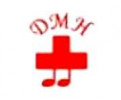24 Zenplus Jobs
Doctor
Zenplus
posted 4d ago
Job Role Insights
Key skills for the job
Job Description
Key responsibilities of an ERCP doctor:
- Medical Consultation: Receive calls from EMTs on the scene, assess patient symptoms and vital signs, and provide immediate medical advice on necessary interventions like medication administration, advanced life support procedures, or transport priorities.
- Decision Support: Guide EMTs through complex medical scenarios by offering diagnosis possibilities based on patient history and presenting symptoms, helping them determine the most appropriate course of action.
- Clinical Oversight: Monitor ongoing patient care during transport, providing ongoing guidance to EMTs as the situation evolves.
- Data Interpretation: Analyze data from the ambulance's monitoring devices and interpret results to inform treatment decisions.
- Patient Triage: Assess the urgency of incoming calls and prioritize cases requiring immediate attention.
- Hospital Coordination: Communicate with receiving hospitals to ensure seamless patient handover and appropriate care upon arrival.
Required Skills and Qualifications:
- Medical Degree: Completion of a recognized medical degree with a strong foundation in emergency medicine.
- Advanced Life Support Certification: Proficiency in advanced life support (ALS) procedures.
- Critical Thinking Skills: Ability to quickly analyze complex situations, make rapid decisions under pressure, and adapt to changing circumstances.
- Communication Skills: Excellent verbal communication skills to clearly instruct EMTs and effectively convey medical information over the phone.
- Technical Proficiency: Familiarity with emergency medical software and communication systems used within the call center.
Employment Type: Full Time, Permanent
Read full job description What people at Zenplus are saying
Similar Jobs for you
Share an Interview






























